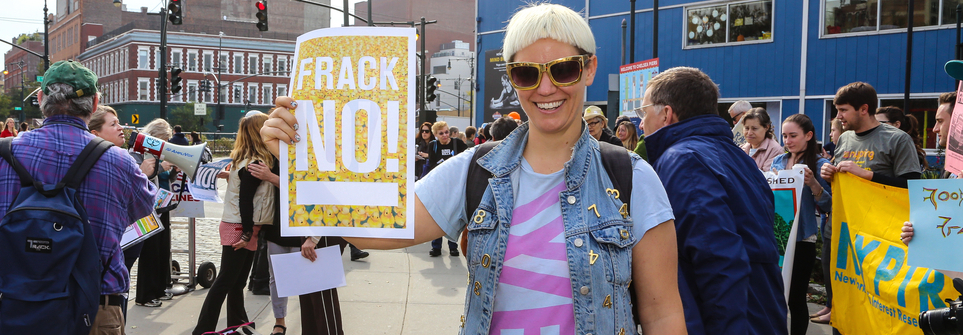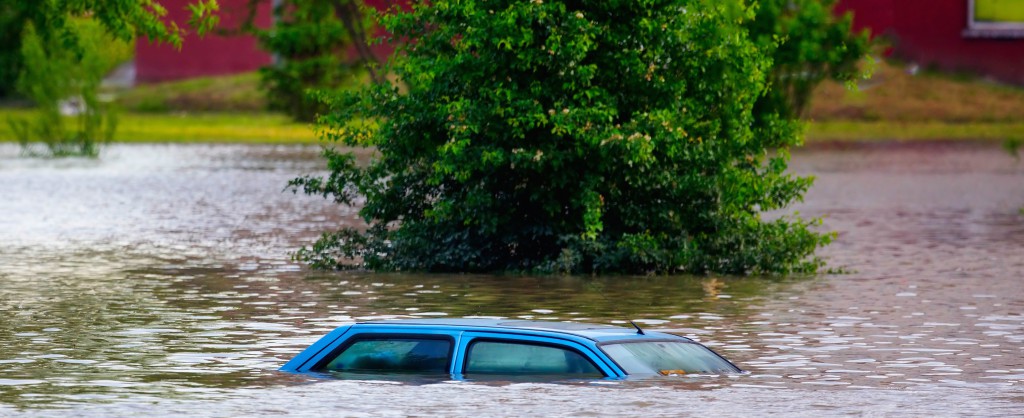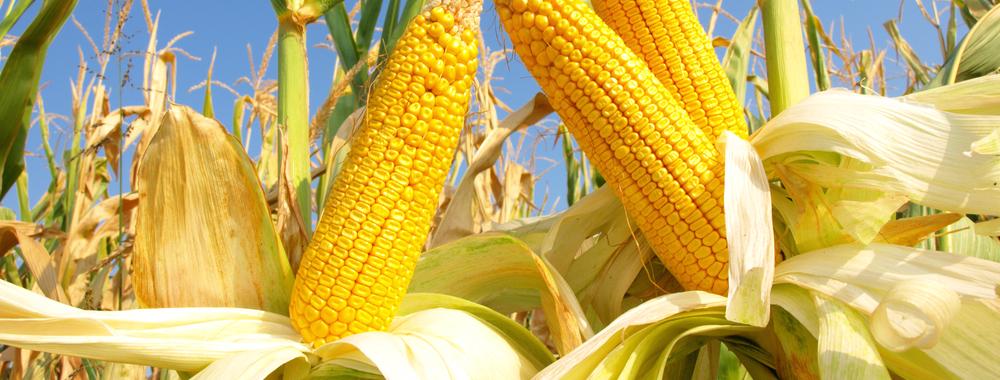Food & Water Watch
Food and Water Watch is a Washington D.C.-based environmental activist
group dedicated to scaring the public regarding the dangers of private
water ownership, traditional farming, genetically modified organisms,
and natural gas exploration.
At a Glance:
Food & Water Watch is a relatively new organization, but has already established an extensive network of “local” groups dedicated to ending natural gas extraction. Examples of the group’s radical positions include:- Crusading to eliminate the sources of 95 percent of our current energy usage.
- Using questionable evidence to support anti-fracking claims.
- Recognizing a “scientific consensus” regarding man-made climate change, but refusing to acknowledge a similar “scientific consensus” on the safety of genetically modified organisms.
Background
Food & Water Watch fabricates facts about the impact hydraulic fracturing (“fracking”) of natural gas to scare local communities and drum up support for its quest to ban the practice in the United States. Food & Water Watch also funds a number of local anti-fracking groups (using money donated from wealthy foundations) to make it appear as though natural gas exploration has generated a grassroots backlash.The group has also trumped up fears about the dangers of GMOs—fears that lack the backing of any scientific or medical organization.
The Money Behind “Grassroots” Campaigns
The largest chunk of Food & Water Watch’s funding comes from trusts, otherwise known as donor-advised funds. In 2012, the organization received $2.5 million from the National Philanthropic Trust, one of the country’s largest donor-advised funds. Such funds allow individuals to make a donation to a public charity and then recommend non-profit grant recipients.Food & Water Watch also receives a large chunk of its funding from the Park Foundation—one of the largest backers of the anti-fracking movement. The Foundation has donated nearly $700,000 to Food & Water Watch since 2008.
Left-wing activists can use donor-advised funds or foundations to donate to the staff at Food & Water Watch, who then transfer it to local “grassroots” organizations that want to ban hydraulic fracturing to extract natural gas.
While environmental activists give the impression that local residents in states with natural gas reserves have banded together to oppose development of their state’s resources, these campaigns are actually far from pure grassroots efforts. Activist groups like Food & Water Watch are bankrolling and organizing these campaigns from their headquarters in Washington, D.C.
In Colorado, the movement to ban fracking was ostensibly led by “Frack-Free Colorado,” a local group of Coloradoans. But a closer look at the financials of Colorado’s anti-natural gas campaign reveals that Food & Water Watch was one of the largest donors to the campaign.
Food & Water Watch was also behind the ballot campaign in Longmont, Colorado, working with “Our Longmont” to support a ban on fracking in the locality. The group says they are “now poised to replicate our victory in Longmont throughout Colorado.”
In New York, Food & Water Watch was heavily involved in organizing the New Yorkers Against Fracking campaign. In 2011 alone, the Park Foundation donated $165,000 to Food & Water Watch specifically to expand the organizing capacity of New Yorkers Against Fracking and aid in the group’s coordination and outreach efforts.
If you try to donate to New Yorkers Against Fracking through its website, you’re taken directly to Food & Water Watch’s donation page. This “grassroots” movement to prevent natural gas exploration in New York is evidently being run from D.C.
Fabricating Facts to Generate Natural Gas Fears

New Yorkers Against Fracking, the organization funded by Food & Water Watch, created a commercial to scare New Yorkers about the dangers natural gas caused in Pennsylvania. But in the absence of actual evidence of environmental harm, the activists relied on unproven anecdotes about the harms inflicted on individuals and communities by the natural gas industry.
One individual featured in the commercial claimed that a natural gas well killed his cows and contaminated his water—a well that didn’t actually involve using hydraulic fracturing. It also turns out that the Pennsylvania Department of Environmental Protection ran tests and determined that the death of his cows was the result of E. coli bacteria in the pond from fecal matter—natural gas had nothing to do with his cows dying.
Capitalizing on Tragedy to Advance Political Beliefs

Food & Water Watch used floods in Colorado, which killed at least 8 people and
caused over a billion dollars in damages, to advance its anti-fracking messaging.
The group claimed that the floods destroyed oil and gas wells, leading to the contamination of the state’s water. However, even these claims have been debunked by the U.S. Environmental Protection Agency and state health officials.
Northern Colorado’s NPR affiliate covered Food & Water Watch’s take on the flooding: “’We’re talking about tens of thousands of toxic chemicals floating down the river, potentially ending up in communities, next to homes, next to agriculture land,’ said Sam Schabacker with Food & Water Watch. ‘We are just beginning to see the extent of the devastation…It clearly demonstrates why these ballot initiatives are going forward to stop fracking.’”
FrackFree Colorado, the “grassroots” anti-fracking organization funded by Food & Water Watch, used the tragedy to claim: “Oil and fracking chemicals are polluting our water, soil and air. In the wake of this public health disaster, we the Concerned Citizens of Colorado call for … [a]n emergency moratorium on all new well permits in Colorado [and] a plan to move immediately to bountiful, benign energy sources, such as wind and solar.”
Meanwhile, Matthew Allen, a spokesman in EPA’s Region 8 office in Denver explained: “The total reported amount of reported [oil] spills is small compared to the solid waste that has spilled from damaged sewer lines and household chemicals from destroyed homes.”
Opposing Private Ownership of Water

Food & Water Watch board members don’t just want water to be clean and pollutant free—they want water to be a government controlled commodity, putting an end to any private ownership of water or water bottling.
Controversial board member Maude Barlow, known as the “Water Czar,” was appointed to advise the United Nations on water policy and hydrological issues despite having no scientific training. At the top of Barlow’s agenda: calling on all nations to take water out of private hands.
Genetically Modified Scaremongering

Food & Water Watch is one of the foremost activist groups spreading misinformation and ignoring the scientific consensus regarding genetically modified foods (GMOs). Food & Water Watch claims that GMOs place “human and environmental health at risk” despite scientific consensus that GMOs are safe.
The U.S. National Academy of Sciences, British Royal Society, World Health Organization, American Medical Association, and American Association for the Advancement of Science all agree that no adverse health effects have been attributed to genetically modified foods. The American Association for the Advancement of Science notes:
Foods containing ingredients from genetically modified (GM) crops pose no greater risk than the same foods made from crops modified by conventional plant breeding techniques.Nina Fedoroff, former president of the American Association for the Advancement of Science, summed up the scientific opinion:
There is absolutely no evidence, repeat no evidence, that modifying plants by molecular techniques is dangerous. There is no evidence that rice expressing a compound that lots of plants make is dangerous.Food & Water Watch even claims that “golden rice,” which was developed to combat Vitamin A deficiencies in the developing world, is unsafe. The World Health Organization reports that providing Vitamin A-deficient children with vitamin A-rich foods could prevent up to 2.7 million children under the age of five from dying prematurely. Food & Water Watch, however, says “there is no evidence that GE technology has had any positive impacts on feeding the developing world.”
https://www.biggreenradicals.com/group/food-water-watch/
======================



No comments:
Post a Comment